Using the Enneagram for Character Development: Avoiding Repetition for Lies Each Type Might Believe
 Using the Enneagram for character development can be a game-changer for crafting layered, believable characters. This ancient personality typing system can offer deep insight into your characters’ core fears and motivations, which makes it a natural fit for building compelling internal arcs. Because the Enneagram inherently emphasizes personal misconceptions (aka, the Lie the Character Believes), thematic Truths, and both Positive and Negative Change Arcs, it becomes an extremely intuitive tool for creating complex and realistic characters. But there is a rub.
Using the Enneagram for character development can be a game-changer for crafting layered, believable characters. This ancient personality typing system can offer deep insight into your characters’ core fears and motivations, which makes it a natural fit for building compelling internal arcs. Because the Enneagram inherently emphasizes personal misconceptions (aka, the Lie the Character Believes), thematic Truths, and both Positive and Negative Change Arcs, it becomes an extremely intuitive tool for creating complex and realistic characters. But there is a rub.
And the rub is that because the Enneagram features only nine personality types, it would also seem to offer only nine possible Lies, Truths, and character arcs. Zoe Dawson brought this up in requesting this post:
I use the Enneagram heavily in crafting my characters, so my question would be: What is your take on using the Enneagram nine personality types and constructing their Lies so that it’s not repetitious for each story? Examples would be great.
Although necessarily limited, the Enneagram still presents an incredibly comprehensive and complete framework for understanding human behavior. As such, there is a degree of truth to the idea that humans can only undergo a certain number of fundamental changes. This harks back to one of my favorite quotes, from Willa Cather:
There are only two or three human stories, and they go on repeating themselves as fiercely as if they never happened.

Creating Character Arcs (Amazon affiliate link)
Still, as Zoe points out, a prolific writer relying on the same framework for every character might find herself running into some repetition—especially when it comes to identifying the Lie each type believes. In previous posts, I’ve noted the fundamental Positive Change and Negative Change Arcs inherent within each core Enneagram type:
>>Click here to read 9 Positive Character Arcs in the Enneagram
>>Click here to read 9 Negative Character Arcs in the Enneagram
Today, I want to look at how to use the Enneagram to deepen your character work while keeping each journey distinct and emotionally resonant.

Avoiding Repetition When Using the Enneagram for Character Development
How can you avoid repetitive arcs when using personality tools like the Enneagram? If each type has a core fear and desire, doesn’t that mean every story featuring a Type One or a Type Nine will end up exploring the same emotional terrain?
Not at all.
In fact, using the Enneagram for character development can open up even deeper and more varied avenues for crafting emotional arcs. Although characters with the same type may struggle with the same core themes, the specific Lies they believe about themselves and the world can take many forms.
If you already know your own Enneagram type, you can think about this from the perspective of your own life. For example, as a core Three, I can easily look through my life and identify how my own core wounding, coping mechanisms, survival tactics, ego identities, and even interests and obsessions are predominantly themed around a Three’s central concerns with identity, authenticity, and personal truth. Indeed, even the fact that my explorations of story theory have focused on character arcs and the internal conflict between “Lies” and “Truths” is arguably a direct emergent from my Three perspective.
When most people think of Threes, they think of the stereotype: hyper-competent workaholic obsessed with success and image. If that’s all you knew about Threes, you might struggle to write characters with personalities nuanced enough to reveal the spiraling fractal of depth hidden behind this simplistic archetype. A deeper understanding of how the Enneagram works (not to mention how people and stories work) allows us to access the functional simplicity of this nine-part system as a foundation for the realistic variation it reveals.
From there, the Enneagram can become a wonderful tool for noticing and exploring the specific flavor of insight and blindness each type brings to any situation. In moving beyond the simplistic stereotypes to acknowledge the deeper themes at play for each type, the sheer vastness of thematic possibilities also becomes clear. For example, if you wanted to explore a Three’s obsession with the subjectivity/objectivity of Truth, you would discover what are likely unlimited character arcs that can eventuate. This is, of course, equally true of all the types.
Using Instinctual Variants to Create Unique Character Arcs

Writing Archetypal Character Arcs (affiliate link)
With all of that said, the suggestions I’m going to share in the rest of today’s post barely scratch the surface of the possible Lies any one type may be challenged to overcome. Next week, I’ll be digging into this a little deeper in answering another reader’s question with an exploration of how Enneagram types function in the different archetypes of the Life Cycle. For today, I decided the most useful way to begin examining the variety available within Enneagram character arcs would be to note how each type’s core Lie may vary depending on which instinctual variant is dominant.
What Are the Three Instinctual Variants?
One of the most illuminating nuances in the Enneagram system is the concept of instinctual variants—what are sometimes called subtypes. These are the primal survival drives that shape how each of the nine types shows up in the world. Instinctual variants don’t change your core type, but they do flavor how that type expresses itself in everyday life.
For more on instinctual variants, I highly recommend Beatrice Chestnut’s book The Complete Enneagram.
There are three instinctual variants:
1. Self-Preservation (sp):
This instinct centers around safety, comfort, and physical well-being. If this is your dominant instinct, you’re probably highly attuned to issues like health, finances, routine, and creating a secure personal environment. You might notice yourself scanning your life for what’s missing or unstable before anything goes wrong.
2. Social (so):
This instinct is all about group dynamics, belonging, and impact. Social-dominant people pay close attention to how they fit into the collective. They’re often oriented toward their place in the tribe, their reputation, and their contribution toward something bigger than themselves. This doesn’t always mean extroversion; it’s more about their awareness of the system.
3. Sexual (sx):
Also called the one-to-one instinct, this drive is focused on intensity, intimacy, and magnetism. It’s about fusion: being fully seen, fully known, and fully alive in the presence of another. People with a dominant sexual instinct crave depth in relationships and experiences. They often have a kind of “charge” to them—an edge, an allure, a sense of passion that leads the way.
Countertypes
Even though each of us uses all three instincts, we tend to favor one, repress another, and let the third play a supporting role. (For example, because I am self-preservation dominant and social repressed, my instinct stack would be shown like this: sp-sx-so.)
Here’s the twist: the dominant instinct can sometimes override the “typical” behavior of your core type. This creates what are called countertypes—one specific orientation for each type that looks different from the core type, but which still lives out the same core fear and desire underneath. (For example, as you’ll see later on, the fact that I am a Three with a self-preservation dominant instinct makes me the countertype. In short: even though I always feel like a Three, I don’t always look like a Three.)
Understanding characters’ instinctual stacks can bring incredible clarity to what type of character arc and thematic journey they are most likely to undertake—and how that might evolve from story to story or even character to character, regardless of type.
Different Lies Each Enneagram Type Character Might Believe
Let’s look at how each Enneagram type can be used to explore a variety of Lies across different stories, genres, and voices. (Note that these examples should not be taken too explicitly—i.e., as the only way to express each subtype’s Lies. They are meant to spur your creativity, particularly in regard to the subjectivity of Enneagram types for the characters referenced. They are also not necessarily representative of a character arc that is completed in the referenced examples. As usual, I have relied on the typings from the site Funky MBTI.)
Type 1: The Reformer
Core Lie: “I must be good to be worthy.”
Core Fear: Being corrupt, defective, or wrong.
Core Desire: To be good, virtuous, and balanced.
Social Lie: “If I don’t set the moral standard, no one will.”
Example: Hermione Granger (Harry Potter): Hermione’s obsession with studying, rules, and doing things “the right way” stems from her fear of failure and need to be seen as competent and morally upright.

Harry Potter and the Philosopher’s Stone (2001), Warner Bros.
Sexual Lie (COUNTERTYPE): “It’s up to me to set the world right—no matter the cost”
Example: Catherine Freneau (Father Goose): Catherine’s intensity stems from a deep sense of personal mission. She pushes herself and others toward transformation, often coming across as driven, zealous, and unrelenting in her pursuit of what she sees as necessary change—even when it strains her relationships.

Father Goose (1964), Universal Pictures.
Self-Preservation Lie: “If I’m not prepared and perfect, I’ll be blamed.”
Example: Atticus Finch (To Kill a Mockingbird): With quiet resolve and unwavering principles, Atticus carries the burden of justice on his shoulders—believing that if he doesn’t stand strong, everything could unravel.

To Kill a Mockingbird (1962), Universal Pictures.
Type 2: The Helper
Core Lie: “I must earn love through service.”
Core Fear: Being unworthy of love.
Core Desire: To be loved and needed.
Social Lie: “If I serve the greater good, I’ll be loved by all.”
Example: Padmé Amidala (Star Wars): Padmé sacrifices her personal desires to serve her people. She’s gracious and composed, always putting duty above self, but her deepest longing is to be accepted and loved for who she really is.

Star Wars: Attack of the Clones (2002), 20th Century Fox.
Sexual Lie: “If I am not needed by someone, I am not valuable.”
Example: Frances Stevens (To Catch a Thief): Frances is bold, alluring, and direct in her affections—flirting and pursuing while also deeply craving connection and validation beneath the surface.

To Catch a Thief (1955), Paramount Pictures.
Self-Preservation Lie (COUNTERTYPE): “If I act helpless or innocent, others will take care of me.”
Example: Robert Crawley (Downton Abbey): Robert often plays the helpless patriarch, relying on others to manage both personal and family matters while maintaining his sense of entitlement to care and attention.

Downton Abbey (2010-15), ITV.
Type 3: The Achiever
Core Lie: “My worth depends on what I accomplish.”
Core Fear: Being worthless or failing.
Core Desire: To be valued and admired for success.
Social Lie: “I must be admired and respected for my success.”
Example: P.T. Barnum (The Greatest Showman): Barnum thrives on his ability to garner admiration and respect through his business success and the spectacle he creates, positioning himself as a charismatic leader and influencer in the public eye.

The Greatest Showman (2017), 20th Century Fox.
Sexual Lie: “My value comes from how attractive and charismatic I am to others.”
Example: Scarlett O’Hara (Gone with the Wind): Scarlett builds her self-worth through her attractiveness and the way she charms others, seeing her relationships and romantic success as a reflection of her value.

Gone With the Wind (1939), MGM.
Self-Preservation Lie (COUNTERTYPE): “I need to work hard and prove myself to secure my place.”
Example: Nancy Wheeler (Stranger Things): Nancy, driven by a need for accomplishment and approval, constantly works hard to prove her worth, even if it means compromising her personal needs for the sake of her career and goals.

Stranger Things (2016-), Netflix.
Type 4: The Individualist
Core Lie: “I must be unique to be significant.”
Core Fear: Being ordinary or not special.
Core Desire: To find themselves and their significance.
Social Lie: “My suffering makes me worthy of love.”
Example: Rose DeWitt Bukater (Titanic): Rose feels trapped and unseen, expressing her suffering as a way of asserting her individuality and longing for a more meaningful life.

Titanic (1997), Paramount Pictures.
Sexual Lie: “If I fight hard enough for what I want, I’ll finally prove I’m not broken.”
Example: Kylo Ren (Star Wars: The Force Awakens): Kylo is consumed by his desire to prove himself, constantly fighting to overcome his perceived weakness and claim a powerful, meaningful identity.

Star Wars: The Force Awakens (2015), Lucasfilm Ltd.
Self-Preservation Lie (COUNTERTYPE): “If I keep pushing myself through pain, I’ll finally become who I’m meant to be.”
Example: Jess Mariano (Gilmore Girls): Jess hides his emotional sensitivity beneath a hardened exterior, relying on independence and quiet intensity to forge his own path in life.

Gilmore Girls (2000-2007), The CW.
Type 5: The Investigator
Core Lie: “I have to protect my energy and stay self-sufficient.”
Core Fear: Being overwhelmed or incapable.
Core Desire: To be competent and capable.
Social Lie: “If I master complex knowledge, I’ll earn my place in the world.”
Example: J. Robert Oppenheimer (Oppenheimer): Oppenheimer commands respect through genius, but remains emotionally withdrawn—even while standing at the center of a historical moment.

Oppenheimer (2023), Universal Pictures.
Sexual Lie (COUNTERTYPE): “If I fully merge with someone, I won’t feel so alone.”
Example: Scottie Ferguson (Vertigo): Scottie becomes obsessively attached to an imagined ideal of love, losing himself in his desire for a connection that will make him feel whole.

Vertigo (1958), Paramount Pictures.
Self-Preservation Lie: “If I hoard my resources and keep to myself, I’ll finally feel safe.”
Example: Ebenezer Scrooge (A Christmas Carol): Scrooge isolates himself and clings tightly to his wealth and solitude, believing this is the only way to feel secure in the world.

A Christmas Carol (2009), Walt Disney Pictures.
Type 6: The Loyalist
Core Lie: “Security must come from the outside.”
Core Fear: Being without support or guidance.
Core Desire: To have security and guidance.
Social Lie: “If I follow the rules and uphold the system, I won’t have to be afraid.”
Example: Willow Rosenberg (Buffy the Vampire Slayer): Willow clings to structure—school, rules, the Scooby Gang—to soothe her insecurity, only stepping into independence when surrounded by trust and purpose.

Buffy the Vampire Slayer (1997-2001, The WB)
Sexual Lie (COUNTERTYPE): “If I’m strong and intimidating enough, nothing can hurt me.”
Example: Guy of Gisborne (Robin Hood): Guy compensates for his insecurity with aggression and dominance, trying to prove his worth through strength, loyalty, and desire.

Robin Hood (2006-2009), BBC Studios.
Self-Preservation Lie: “If I stay close to what’s familiar and keep others happy, I’ll be safe.”
Example: Bilbo Baggins (The Hobbit): Bilbo prefers the safe predictability of his hobbit hole and resists adventure, until trust in others helps him find his courage.

The Hobbit: An Unexpected Journey (2012), Warner Bros.
Type 7: The Enthusiast
Core Lie: “Pain must be avoided at all costs.”
Core Fear: Being deprived or trapped in pain or deprivation.
Core Desire: To experience satisfaction and fulfillment.
Social Lie (COUNTERTYPE): “If I serve a meaningful cause and stay upbeat, I’ll be valued and protected.”
Example: Elizabeth Bennet (Pride and Prejudice): Lizzy combines charm and cleverness with a sense of social justice and moral clarity, while using wit and idealism to sidestep vulnerability.

Pride & Prejudice (2005), Focus Features.
Sexual Lie: “If I follow my passions and chase the next dazzling experience, I’ll find what I’m missing.”
Example: Ariel (The Little Mermaid): Ariel dives headfirst into new worlds and romantic dreams, enchanted by what could be and driven by a restless hunger for something more.

The Little Mermaid (1989), Walt Disney
Self-Preservation Lie: “As long as I surround myself with the right people and pleasures, I’ll be fine.”
Example: Han Solo (Star Wars): Han seeks freedom, resources, and loyal allies to keep life pleasurable and self-serving, even while avoiding the emotional weight of deeper connection.

Star Wars: The Empire Strikes Back (1980), 20th Century Fox.
Type 8: The Challenger
Core Lie: “Vulnerability equals weakness.”
Core Fear: Being controlled or vulnerable.
Core Desire: To protect self and remain in control.
Social Lie (COUNERTYPE): “If I fight for others and protect what’s right, I can justify my strength and find belonging.”
Example: George Bailey (It’s a Wonderful Life): George is a passionate, justice-driven leader who sacrifices his own dreams to protect his community but still struggles with the weight of responsibility and frustration.

It’s a Wonderful Life (1947), Liberty Films.
Sexual Lie: “If I can overpower and possess what I want, I’ll never be betrayed or abandoned.”
Example: Erik Killmonger (Black Panther): Erik’s aggression stems from a deep fear that trusting anyone will lead to his downfall.

Black Panther (2018), Marvel Studios.
Self-Preservation Lie: “As long as I can take care of myself and get what I need, I don’t have to rely on anyone.”
Example: Henry VIII (The Tudors): Possessive and forceful, Henry demands absolute loyalty and control in love and power—unwilling to surrender anything once he’s claimed it.

The Tudors (2007-2010), BBC Two
Type 9: The Peacemaker
Core Lie: “My presence creates conflict.”
Core Fear: Being overwhelmed by conflict and tension.
Core Desire: To create inner and outer peace.
Social Lie (COUNTERTYPE): “If I’m useful to the group, I’ll be safe and accepted.”
Example: Frodo Baggins (The Lord of the Rings): Frodo puts the fellowship’s mission above his own well-being, often losing himself in the needs of the collective.

The Lord of the Rings: The Fellowship of the Ring (2001), New Line Cinema.
Sexual Lie: “I only matter when I merge completely with someone else.”
Example: Bella Swan (Twilight): Bella dissolves her sense of identity into her relationship with Edward, struggling to separate her desires from his.

Twilight (2008), Summit Entertainment.
Self-Preservation Lie: “As long as I’m comfortable, nothing else really matters.”
Example: Queen Elizabeth II (The Crown): Elizabeth quietly clings to routine and the comforts of duty, avoiding emotional upheaval by keeping everything in its place.

The Crown (2016-2023), Netflix.
***
By integrating the Enneagram’s instinctual variants into your character development process, you gain access to a dynamic range of emotional and thematic possibilities, even within the same type. Far from boxing your characters into rigid molds, the Enneagram offers a flexible and deeply human lens through which to explore their varied struggles, motivations, and transformations. Whether you’re writing a single story or an entire series, the richness of these internal variations ensures that each character arc can remain fresh, specific, and emotionally resonant.
In Summary
Even when writing multiple characters of the same Enneagram type, there is a world of variety available. By identifying new Lies and the situations in which those Lies can arise, writers can deepen both the realism and emotional texture of their characters.
Key Takeaways
- Characters of the same Enneagram type share core fears and desires, but not identical arcs.
- The specific Lie a Character Believes can change depending on their environment, relationships, and inner development.
- Great storytelling often comes from exploring different expressions of the same psychological truth.
- The instictual variants that create the Enneagram subtypes open a window into the variety available for exploring many different themes and arcs.
Want More?

Outlining Your Novel (Amazon affiliate link)
Want to elevate your character development? Outlining Your Novel is the perfect guide to help you structure your plot and deepen your characters. It offers a plethora of tools for character development, including personality systems like the Enneagram. You can gain valuable insights into your characters’ motivations and growth, helping you create multi-dimensional figures that resonate with your readers. You can pair these frameworks with the outlining process in the companion workbook to craft compelling characters who feel real and dynamic. Start outlining your way to stronger, unforgettable characters today! It’s available in paperback, e-book, and audiobook
Wordplayers, tell me your opinions! Have you ever used the Enneagram for character development in your writing? What insights has it given you into your characters’ motivations and growth? Tell me in the comments!
Click the “Play” button to Listen to Audio Version (or subscribe to the Helping Writers Become Authors podcast in Apple Podcast, Amazon Music, or Spotify).
___
Love Helping Writers Become Authors? You can now become a patron. (Huge thanks to those of you who are already part of my Patreon family!)
The post Using the Enneagram for Character Development: Avoiding Repetition for Lies Each Type Might Believe appeared first on Helping Writers Become Authors.
Go to Source
Author: K.M. Weiland | @KMWeiland




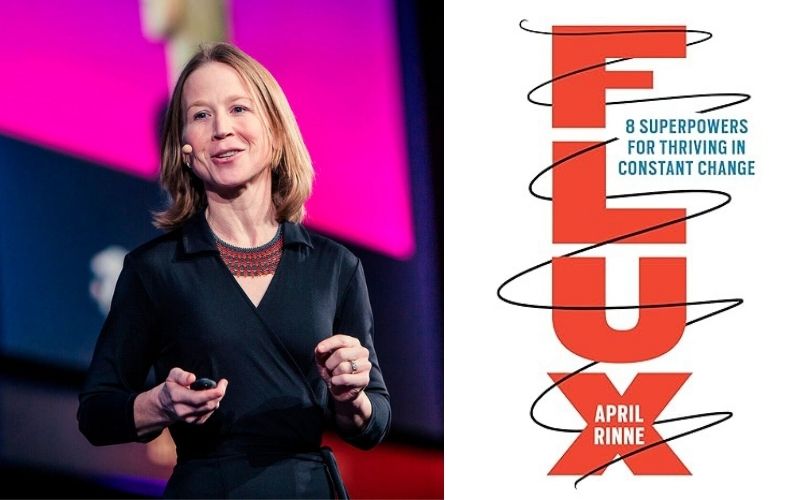




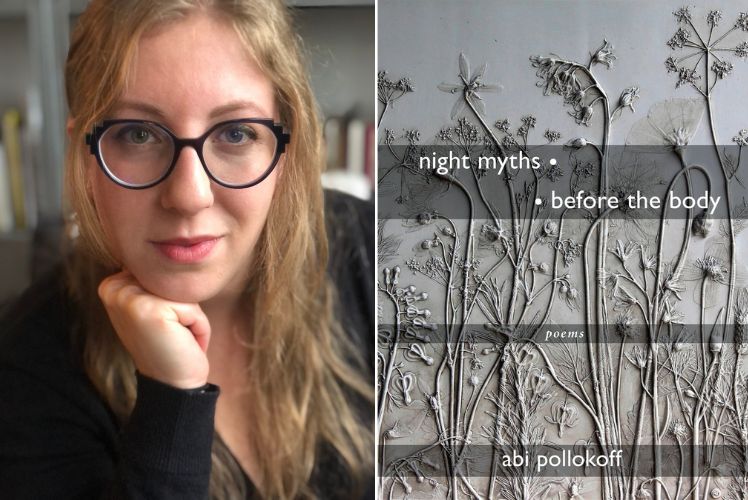



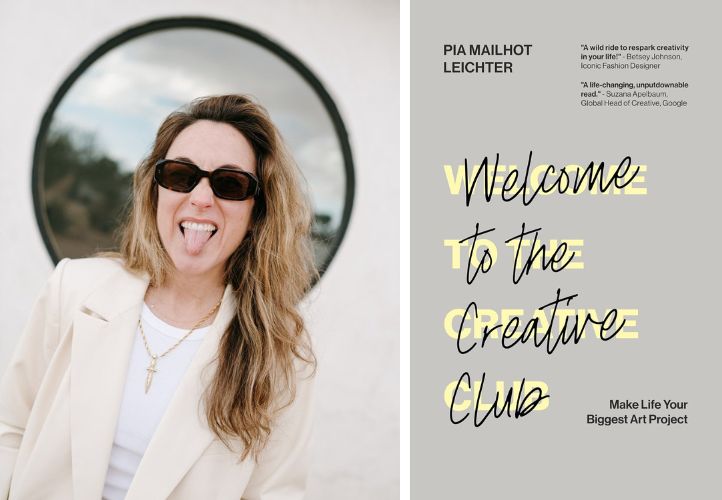
 In storytelling, few arcs are as gripping—or chilling—as the Corruption Character Arc. In this arc, characters don’t just fall, they choose to fall (although, of course, they don’t generally think of it like that). Whether driven by fear, pride, or desire, they trade their integrity for a Lie, believing it will give them what they want. Even when this is true, the cost is an ever-deepening descent into self-delusion and, often, self-righteousness.
In storytelling, few arcs are as gripping—or chilling—as the Corruption Character Arc. In this arc, characters don’t just fall, they choose to fall (although, of course, they don’t generally think of it like that). Whether driven by fear, pride, or desire, they trade their integrity for a Lie, believing it will give them what they want. Even when this is true, the cost is an ever-deepening descent into self-delusion and, often, self-righteousness.









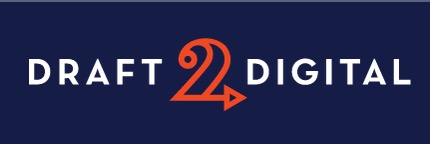
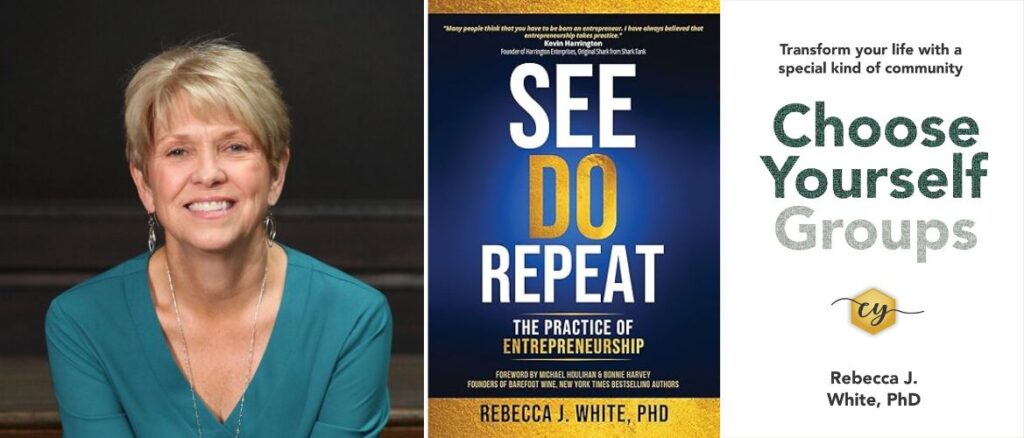
 When writing a Fall Arc, writers get to explore the slow, often heartbreaking process of moral or emotional decline. In this type of Negative Change Arc, the characters’ refusal to change or acknowledge their flaws becomes a central theme. They hold onto a Lie—a deeply ingrained belief or limited perception of the world—that drives their actions and decisions. Over time, this self-deception evolves into something darker, affecting not just their own choices, but their relationships with others. Understanding how to write a Fall Arc can help you create a character whose downfall feels deeply tragic and engaging.
When writing a Fall Arc, writers get to explore the slow, often heartbreaking process of moral or emotional decline. In this type of Negative Change Arc, the characters’ refusal to change or acknowledge their flaws becomes a central theme. They hold onto a Lie—a deeply ingrained belief or limited perception of the world—that drives their actions and decisions. Over time, this self-deception evolves into something darker, affecting not just their own choices, but their relationships with others. Understanding how to write a Fall Arc can help you create a character whose downfall feels deeply tragic and engaging.










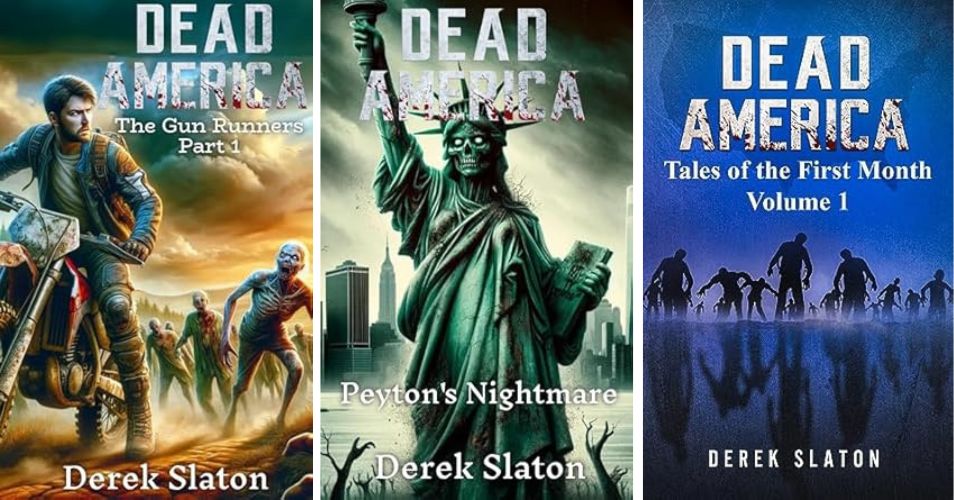
 The Disillusionment Arc is one of the most powerful and emotionally resonant transformations a character can undergo. At its core, this arc is about awakening—shedding comforting illusions to face a stark and often uncomfortable Truth. While it shares similarities with the Positive Change Arc, the Disillusionment Arc doesn’t always lead to a hopeful resolution. Instead, it challenges both the characters and the audience to grapple with the weight of reality. However, despite its seemingly bleak nature, the Disillusionment Arc isn’t inherently negative. It reflects a fundamental aspect of human growth: the process of seeing the world as it truly is and deciding what to do with that knowledge.
The Disillusionment Arc is one of the most powerful and emotionally resonant transformations a character can undergo. At its core, this arc is about awakening—shedding comforting illusions to face a stark and often uncomfortable Truth. While it shares similarities with the Positive Change Arc, the Disillusionment Arc doesn’t always lead to a hopeful resolution. Instead, it challenges both the characters and the audience to grapple with the weight of reality. However, despite its seemingly bleak nature, the Disillusionment Arc isn’t inherently negative. It reflects a fundamental aspect of human growth: the process of seeing the world as it truly is and deciding what to do with that knowledge.












Recent Comments